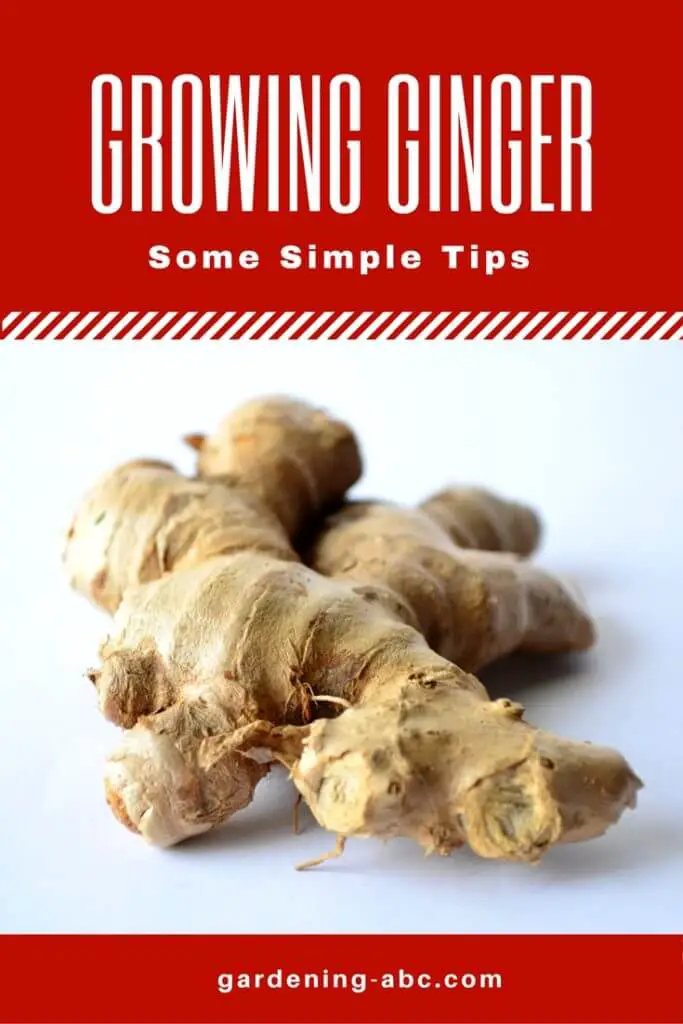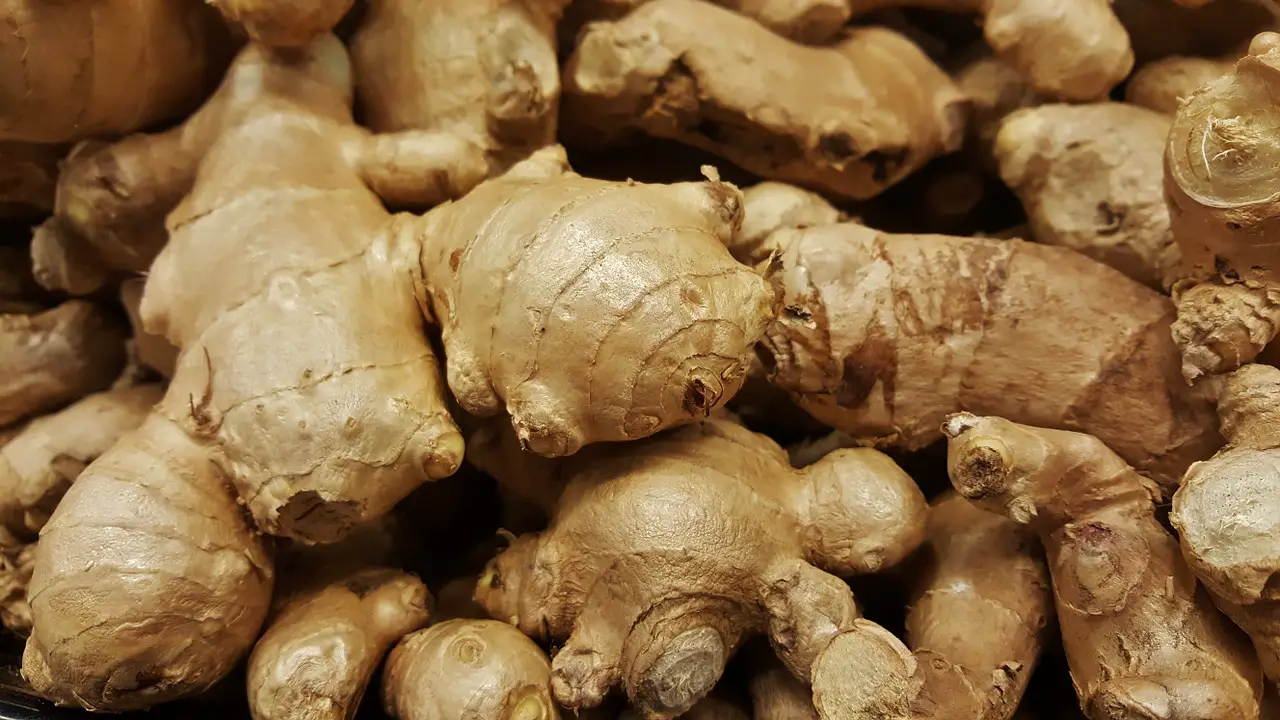We use affiliate links to run our site. When you buy through links on our site, we may earn an affiliate commission, without any added cost to you. Learn more
Growing ginger at home is the cheapest way to make sure you never run out of this wonderful medicinal plant. Homegrown ginger not only tastes better it also is free from harmful chemicals that are so dominant in commercial ginger.
Before starting our discussion about How to grow ginger plants First we need to understand the basics. Not all ginger varieties are edible. Many ginger varieties are used as ornamental plants(ginger flowers).
If you are planning to grow ginger for eating purposes the best-known species is Zingiber officinale.
When we talk about the edible part of ginger, we generally refer to ginger root. But it is the rhizomes (modified stems) that we eat. The ginger rhizome is aromatic, pungent, and spicy. And are often referred to as ginger roots.
It is one of the plants which need very less amount of caring and maintenance. You just need to know the basics of growing ginger.
How to Grow Ginger?
Ginger is a tropical plant. It grows well in humid climates. So if you live in a warm climate you shouldn’t have any problem growing ginger. Now, if your climate is a dry one, a bit of spraying will definitely help the plant.
Ginger is actually pretty easy to grow at home. You can grow ginger indoors, in your backyard, or even in raised beds.
Ideal Site Selection For A Ginger Plant:
Ginger loves sunlight. So make sure the place you are growing ginger receives enough sunlight. If you are growing ginger indoors you have to arrange some kind of artificial light to fulfill their needs.
As mentioned in my earlier post, Sunlight is very important for these types of plants.
The Ideal Soil For Growing Ginger Roots:
Ginger prefers slightly acidic soil (pH level of 6.1 to 6.5). If you find your soil pH is not up to that level you can amend the soil accordingly.
Use loose loamy soil to grow ginger. Add a good amount of compost to the soil before planting ginger. You can also use good-quality potting soil and mix it with compost.
How to Plant Ginger Root:
Always try to grow the plant from organic ginger. A very good source for this is getting a fresh ginger root from a neighbor who is also growing ginger.
If you want to plant store-bought ginger, soak it in water overnight. This is because store-bought gingers are treated with growth retardants (in most cases). Soaking them in water will dissolve the chemicals.
A ginger root (rhizome) has small eyes. When the eyes turn green in color that is probably the best time to plant ginger. Each eye will give rise to a single plant.
Cut the rhizome into parts(1-1.5 inches) without damaging the eyes. Set these pieces of ginger aside until they form a callus.
While planting ginger always put the eye side (the buds) up and just below the soil. Then cover it with soil.
A ginger plant can grow 3-4 feet tall. While planting keep that in mind so you can give enough space between two plants.
Ginger needs humid climates. For drier places, a bit of spraying will benefit the plant. Click To TweetWatering Ginger Plants:
Water is also a crucial factor in growing ginger. Make sure the soil is moist while the active growing season of ginger is going on.
Use mulch to make better use of the soil moisture. Mulch prevents water from evaporation. Adding different soilless media to the soil can also increase the water retention of the soil.
Also, try not to over-water. It will also drain out the nutrients from the soil.
How to Fertilize Ginger:
Ginger is not a voracious eater. So, if you have added enough compost before planting ginger you don’t need to add much.
In case you leave in a place where the rain is plenty and your soil gets drenched many times, chances are your soil nutrition also fades away with the water. Here you need to add nutrients like seaweed, fish extractions, or other organic manure from outside.
Hilling of Ginger Plants:
In approximately 4 to 6 weeks after planting, check the base of the ginger shoots. Once you find a bright pink substance at the base of the stem, cover the base with soil. This is also called the hilling of ginger plants.
Repeat the process every 2 to 4 weeks.
Harvesting Ginger Roots:
A ginger plant generally takes 8 months or more to mature. Once you see some drying leaves your ginger is probably matured and it is time for harvesting. Many people pull out ginger earlier than this but the mature ginger always tastes better.
Hawaiian Red Ginger Starter Plant Buy Herbal Sampler: 20-herb Starter SetWhile harvesting, look out for rhizomes with buds in them, these are easier to use for replanting.
Ginger flowers can be exceptionally fragrant, you can use them in a bouquet. Click To TweetGinger Flower:

Some varieties of Ginger flowers are exceptionally fragrant. So if you find flowers you can definitely snip them and use them in other decorative formats (like making a bouquet).
Do not worry this will not harm the health of the plant. Flowering needs at least two years. So if you are thinking about flowers you have to harvest very carefully and should only extract a few from here and there.
Companion Plants For Ginger:
Ginger is a very good companion plant. You can grow ginger with other plants for pest control purposes. Some of the best companion plants for ginger are plants from the legume family, cilantro, peppers, etc. They do very well when planted with garlic.
You can find more options in different combinations in my earlier article titled Companion Planting: A basic Know-how.
Conclusion:
And there you have it, folks! You’re now a pro at growing ginger like a pro. This versatile herb not only adds a unique flavor to your dishes but also boasts numerous health benefits. So why not try growing some in your garden today and impress your friends and family with your green thumb?
And don’t forget to spread the love by sharing this post with others. Who knows, you might just inspire someone to start their own herb garden.
And while you’re at it, be sure to check out the rest of GardenersPath.com for more tips, tricks, and inspiration on all things gardening. Happy planting!
Like this Article? Don’t forget to pin it

Amazon and the Amazon logo are trademarks of Amazon.com, Inc, or its affiliates.

Useful information !!!!
Thank you. I'll try again. My first try failed.
Your way to enlighten everything on this blog is actually pleasant, everyone manage to efficiently be familiar with it, Thanks a great deal.http://www.thetreecenter.com
Great Tips to Grow Ginger. If looking for vegetable seeds click here seeds
Truly enjoyed reading this article. I have never tried growing ginger ever but I might give it a shot here in Canada. I will keep it on my to-do list for next summer.. Sodding Toronto
If you want to enhance the beauty of your garden, choose from the wide variety of fauna offered by our exotic plant nursery Sussex. We at Athelas Plants have created a name for offering the widest range of shrubs, trees and grasses and other plants to suit your individual requirements and preferences.
Plant store Sussex
We are serving and dealing with the Professional gardening equipment, gardening tips, best Garden tools, equipment Online and watering tools with cheap rates and qualities.
Good articles 😀 Ginger flower looks great
Good stuff. That’s a great post. Much appreciated.
It’s very trouble-free to find out any matter on net as compared to books,
as I found this post at this web page.
I’m more than happy too fіbd tis page. I need to to thɑnk you ffor oneѕ time just
foor this wonderful read!! I dеfinitely enjoyеd every pardt of it and I have yߋu bookmarked to ѕee new things in your
site. http://www.fdkswkj.com.cn/comment/html/?193116.html
Yoou really makle it seem really easy together with your presentation but I to find this matter
to be really something that I feel I’d never understand. It seems too complex
and extremely broad for me. I’m taaking a look forward to yoour next put up, I’ll try to get the hold
of it!
Very good blog! Do you have any suggestions for aspiring writers?
I’m hoping to start my own site soon but I’m a little lost on everything.
Would you propose starting with a free platform like WordPress or
go for a paid option? There are so many options out there that I’m totally overwhelmed ..
Any suggestions? Many thanks!
This is a topic that is close to my heart… Cheers!
Where are your contact details though?
I’ve been growing ginger for the last three or four years successfully. I even got a bloom one year. The only problem I have is it doesn’t taste good. Always woody and no spice/heat to it. What can I do different?
Helpful information. Thanks for another fantastic post. I bookmarked
it..
Aw, this was an extremely nice post. Taking a
few minutes and actual effort to create a very good article?
but what can I say? I put things off a whole lot and don’t manage to get nearly anything done.